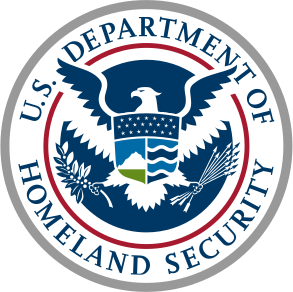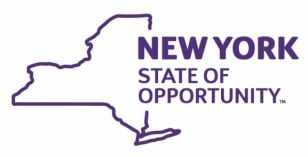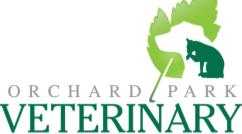Why Choose Advo Medical Waste Disposal Company?
If your current local NC medical waste disposal service doesn’t provide top notch service with the best pricing, then it’s time to switch to Advo medical waste disposal company. Here are some reasons why:
See how Advo Medical Waste Disposal beats the competition in North Carolina.
1. Superior Service
Our service is better than the competition. We offer quick and prompt NC medical waste pickup services with the flexibility you need to meet your needs.
2. Guaranteed Lower Prices
We guarantee to save you at least 30% off of your current local medical waste disposal service in North Carolina. We will provide you with an accurate price with a quick over the phone quote.
3. Simple Invoicing With No Hidden Fees
Our invoices are clear and easy to understand. We'll never hit you with any unexpected surcharges, environmental fees or administration fees. We guarantee that the price we quote you will be accurate.
4. Full Compliance With all North Carolina State and Federal Medical Waste Regulations
Advo Waste is a fully licensed and insured NC medical waste disposal company, and we guarantee to remain in 100% full compliance. Our highly skilled staff can conduct a compliance review of your facility as well as train your employees in proper handling and disposing of medical waste in your office.
5. Professional and Responsive Service Staff
All of our employees are highly trained and certified in handling and disposing of your NC medical waste and sharps. They have passed background checks and are subject to random drug tests to ensure that we have the highest quality employees.
6. Our Money-Back Guarantee
If you’re not happy with our service, we promise to make it right or we’ll refund your service fee.
Types of Medical Waste We Handle
Pathological waste
Biological waste
Sharps needles and syringes - Visit this page to find sharps disposal locations in NC.
Chemotherapy waste
Cultures and stocks of infectious agents
Discarded medical equipment and parts
and More
Medical Waste Classifications
Biomedical waste includes needles / sharps, chemotherapy waste, pathological waste, biological waste, cultures and stocks of infectious agents, discarded medical equipment and parts and more.
Storage of Medical Waste
Biomedical waste is contained in a manner and location which provides protection from animals, the weather, does not provide a breeding place for insects or rodents, and minimizes any exposure to the public. The containers shall be labeled with the biohazard symbol so that it is readily visible from any direction. Biomedical waste must be stored in rigid containers leak proof containers and securely closed before transportation.
Information About North Carolina
North Carolina is a US state located in the southeastern region of the United States. North Carolina borders Georgia and South Carolina, Tennessee is to the west, the Atlantic Ocean is to the east, and Virginia is located to the North of North Carolina. The most populous city is Charlotte, which is also the second largest banking center in the United States after New York City. The capital of North Carolina is Raleigh. North Carolina is the 9th most populous of the 50 United States.
North Carolina experiences severe weather in both the summer and the winter. The summer brings threats of hurricanes, heavy rain, flooding, and tropical storms. There have been a few hurricanes that have hit North Carolina, including Hurricane Floyd, Hurricane Fran, and Hurricane Hazel. Hurricane Isabel was the most destructive and was a Category 4 storm. The elevation in North Carolina is above sea level and is responsible for the temperature change across the state. The mountain area is the coolest year round. The climate in North Carolina is also influenced by the Atlantic Ocean as well as the Gulf Stream.
The most populous cities in North Carolina include; Charlotte, with a population of about 827,097 people, Greensboro, with a population of about 285,342 people, Raleigh, with a population of about 451,066 people and Durham, with a population of about 257,636 people.
North Carolina opened the first public university in the United States in 1795, named the University of North Carolina. It is now named the University of North Carolina at Chapel Hill. 200 years later, the University of North Carolina system has 17 public universities North Carolina State University, North Carolina Central University, the University of North Carolina at Chapel Hill, the University of North Carolina at Greensboro, Western Carolina University, the University of North Carolina at Charlotte and UNC School of the Art, to name a few of the Universities. As well as universities, North Carolina also has 58 different public community colleges. The largest university in North Carolina is North Carolina State University, and enrolls more than 34,000 students.
This southeastern state spans from the beaches of the Atlantic Ocean to the Appalachian Mountains. North Carolina is divided into 100 counties, including Durham, which is home to the largest research park, Research Triangle Park, in the United States. Some of the first settlers, known as the Woodland-culture American Indians were in the area around 1000 BCE. However, by 750 CE, the Mississippian-culture American Indians inhabited the area and developed strong political units that had longer lasting settlements.
Home to famous rivals of Duke University and the University of North Carolina, this state had a prominent part in the Revolutionary War, the Antebellum period and the Civil War. In more recent years, North Carolina has become a very popular tourist area, specifically with the beach area known as the Outer Banks. The Outer Banks is a 200 mile long string of barrier islands and splits off the coast They attract millions of tourists each year because of the subtropical climate and open, expansive beachfronts.
Types of Biohazardous Waste
- Cultures and stocks of infectious agents
- Pathological waste
- Sharps that have been used in human or animal patient care or in medical, research, or industrial laboratories
- Contaminated animal carcasses, body parts, and bedding of animals that were exposed to infectious agents during research
- Any discarded preparations made from genetically altered living organisms and their products
- Waste human blood and products of blood
- Wastes from human or animal patient care, surgery or autopsy that were in contact with infectious agents
- Laboratory wastes from medical, pathological, pharmaceutical, or other research
- Dialysis wastes that were in contact with the blood of patients undergoing hemodialysis
- Discarded medical equipment and parts that were in contact with infectious agents
- Biological waste and discarded materials contaminated with blood, excretion
- Such other waste material that results from the administration of medical care to a patient whether human or animal by a health care provider and is found by the director in consultation with the division of public health services or state veterinarian to pose a threat to human health or the environment due to its infectious nature.
Cities We Service in North Carolina
AdvoWaste is the leading medical waste company in North Carolina state serving Charlotte, Raleigh, Greensboro, Durham, Winston-Salem, Fayetteville, Cary, Wilmington, High Point, Greenville, Asheville, Concord, Gastonia, Jacksonville, Rocky Mount, Chapel Hill, Burlington, Wilson, Huntersville, Kannapolis, Hickory, Apex, Goldsboro, Salisbury and more.
Get your quote



























